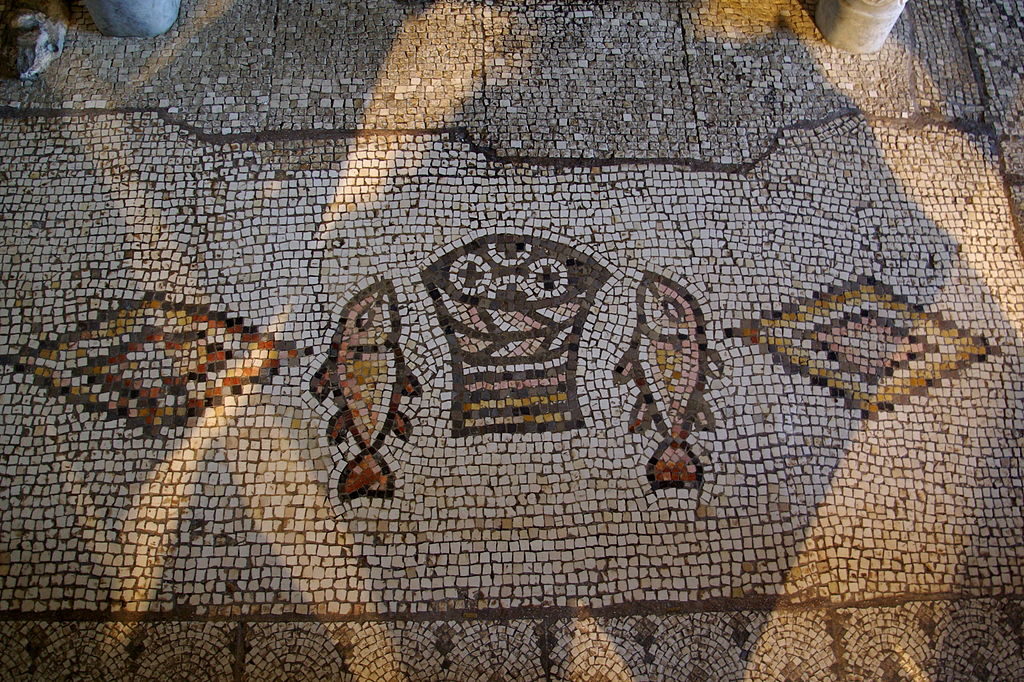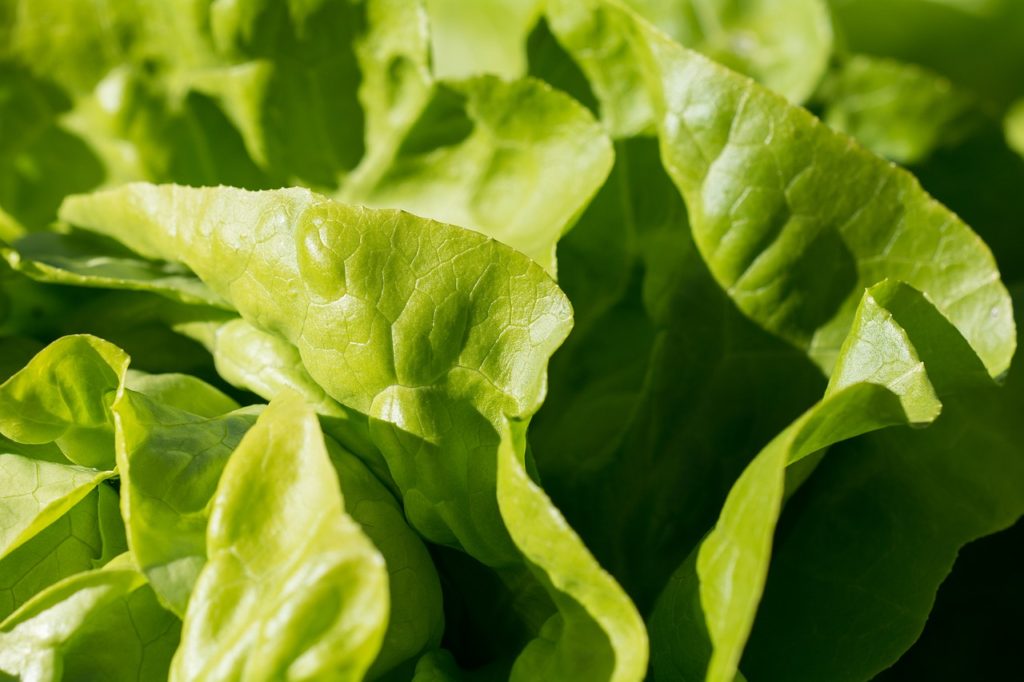Why We Say Grace
My favorite coffee mug bears the image of the mosaic from the floor under the communion table at the Church of the Multiplication in Galilee. It’s my most treasured memento from my Holy Land visit. It depicts two fish, consistent with most of the biblical accounts of Jesus’ feeding miracle; but it only shows four loaves, not five. Why? The simple image contains a profound claim: the fifth loaf is the one being broken and shared at the table above the mosaic.

The mosaic – and my little coffee mug – remind me that it is by God’s hand that we are all continually fed. This truth is what inspires me to raise my daughters with the practice of daily mealtime grace.
Saying grace is a countercultural act in two ways. First, it shows our gratitude for what is present over against our anxiety about what is absent. Second, it pushes back against our society’s commodification of food by naming it as gift rather than as mere thing.
Giving thanks (eucharistia, in Greek!) connects our nightly family meal to the meal we share in church on Sunday. And like that petition from the Lord’s Prayer, “give us this day our daily bread,” our meal-time thanksgiving is part descriptive and part conviction: it says that the food that is here is enough; and it says we believe that God will continue to provide for our needs. We needn’t hoard food, or anything else for that matter. It offers us a continual way out of the myth of scarcity that informs so much of our consumer culture.
Giving thanks for our food classifies it as a gift we receive, rather than a mere thing we acquire. To call something a gift, is to acknowledge that is has, like all gifts, a story and a source. The source of our food is God – not a supermarket, or a lab, or a factory, or ultimately even a farmer. The story of each meal we eat is a rich and complex narrative of human and divine collaboration that results in the new creation on our plates.

In saying grace, we name ourselves as dependent creatures, who rely on both the grace of God and the sacrifice of other kinds of life to sustain us.
You may have noticed that so far in this post, I have avoided talking about how I actually say grace with my family. That’s because, admittedly, we’re still working out the kinks. Which is to say, we’re not especially consistent about it. The ages of our daughters (not-quite-1 and 3), plus 2 full-time work schedules adds up to a nightly dinner hour that is often chaotic, and frequently disrupted by the baby’s bedtime, a toddler meltdown about the menu, or both. Grace is sometimes just a sentence muttered by one of us before (or during!) the meal. Other times, we take time to hold hands and let the toddler lead us in a meandering “Thank you, Jesus…” litany.
I grew up saying a simple, one sentence grace that we never forgot to say, and never strayed from verbally: “Bless us, O Lord, and these thy gifts, which we are about to receive from thy bounty, through Christ our Lord; Amen.”
Now, go back and read that previous sentence about four times faster than you just did, and you’ll get a better approximation of what it actually sounded like at my family’s dinner table each night. I haven’t taught this particular grace to my older daughter yet, in part because I don’t want it to become something she breezes through by rote (as I did for many years) without stopping to think about it.
And indeed, when I’m visiting my family of origin, it amuses me to no end to hear my nephews race through that prayer even faster than I ever could. But it also surprises me all over again every time I slow it down to realize how much is packed in there: a petition for blessing of both the food and ourselves; the naming of God as the source of our food, and of the food as a gift; and an affirmation of the bounty of God’s economy.
Perhaps I should teach it to her. Perhaps I will, tomorrow. Probably, realistically, I won’t. But one thing I will be certain to teach her, as soon as she’s old enough to understand it, is the story behind that mosaic on my coffee mug. How it takes the story of Jesus feeding the multitudes and applies it to our own lives. How it shows that it is by God’s hand, not our own doing, that we are all continually fed. And that this happens not by magic, but by grace.
No comments:
Post a Comment